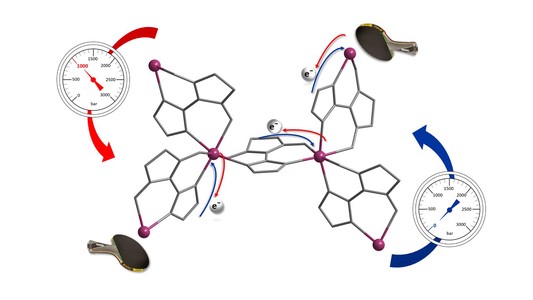When electrons play ping pong in molecules
Hypersensitive pressure-dependence of the conversion temperature of hysteretic valence tautomeric manganese–nitronyl nitroxide radical 2D-frameworks.
Chemical Communications 2021
When electrons play ping pong in molecules
Hypersensitive pressure-dependence of the conversion temperature of hysteretic valence tautomeric manganese–nitronyl nitroxide radical 2D-frameworks.
Chemical Communications 2021
Scientists from the Laboratory of Multimaterials and Interfaces (CNRS/University Claude Bernard Lyon 1) have developed molecular materials based on metals and radicals where electrons are set in motion in a metal-radical ping-pong game punctuated by temperature variations around -20°C. This back and forth movement causes the switching between two magnetic states that reflect the thermal history of the material and thus confer a memory effect. In collaboration with the Universities of Montreal and Hiroshima, they have shown that by applying low pressure, they can induce this transition at room temperature, making these compounds more easily usable for applications in memory devices or sensors. Results to be found in the journal Chemical Communications.
More details directly on CNRS website.
